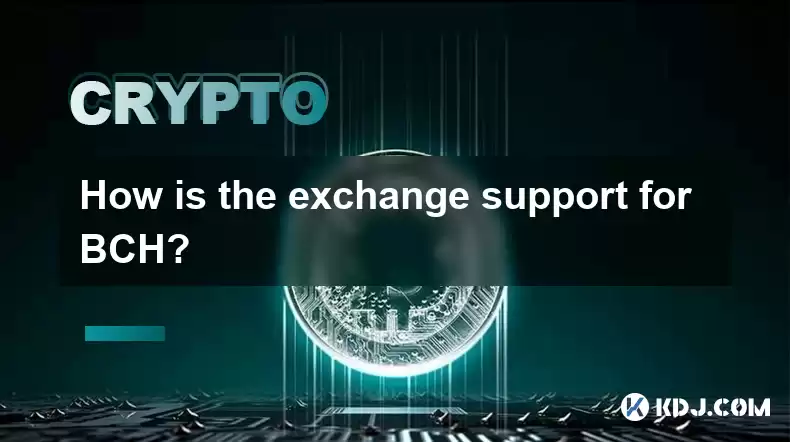-
 Bitcoin
Bitcoin $120100
1.16% -
 Ethereum
Ethereum $4329
2.25% -
 XRP
XRP $3.192
-0.22% -
 Tether USDt
Tether USDt $1.000
-0.01% -
 BNB
BNB $805.2
0.47% -
 Solana
Solana $178.7
-1.85% -
 USDC
USDC $0.9998
0.00% -
 Dogecoin
Dogecoin $0.2305
-1.62% -
 TRON
TRON $0.3445
1.17% -
 Cardano
Cardano $0.7940
-1.28% -
 Hyperliquid
Hyperliquid $44.44
-1.20% -
 Chainlink
Chainlink $21.86
-2.42% -
 Stellar
Stellar $0.4423
-0.15% -
 Sui
Sui $3.728
-3.84% -
 Bitcoin Cash
Bitcoin Cash $584.8
2.19% -
 Hedera
Hedera $0.2524
-2.87% -
 Ethena USDe
Ethena USDe $1.001
-0.02% -
 Avalanche
Avalanche $23.66
-0.78% -
 Litecoin
Litecoin $124.5
0.39% -
 Toncoin
Toncoin $3.399
1.77% -
 UNUS SED LEO
UNUS SED LEO $9.002
-0.44% -
 Shiba Inu
Shiba Inu $0.00001327
-2.10% -
 Uniswap
Uniswap $11.42
2.58% -
 Polkadot
Polkadot $3.957
-2.50% -
 Cronos
Cronos $0.1696
4.50% -
 Dai
Dai $1.000
0.00% -
 Ethena
Ethena $0.8139
3.04% -
 Bitget Token
Bitget Token $4.442
-0.38% -
 Monero
Monero $271.2
2.93% -
 Pepe
Pepe $0.00001168
-2.91%
How is the exchange support for BCH?
Bitcoin Cash (BCH) exchange support varies widely; research fees, security, and available trading pairs before trading, considering factors like market capitalization and regulatory landscapes impacting listings.
Mar 12, 2025 at 12:55 pm

Key Points:
- Bitcoin Cash (BCH) exchange support varies significantly across platforms. Some exchanges offer robust support with numerous trading pairs and advanced features, while others offer limited support or none at all.
- Factors influencing exchange support include BCH's market capitalization, trading volume, and regulatory considerations.
- Users should carefully research exchanges before trading BCH, considering factors like fees, security, and available trading pairs.
- Understanding the different types of BCH wallets and their compatibility with exchanges is crucial for secure trading.
- Staying informed about exchange announcements and potential delistings is essential for BCH holders.
How is the Exchange Support for BCH?
Bitcoin Cash (BCH), a cryptocurrency that forked from Bitcoin in 2017, enjoys varying degrees of support across different cryptocurrency exchanges. The level of support offered can significantly impact a user's trading experience and access to liquidity. Some major exchanges provide comprehensive BCH trading options, while others may offer limited functionality or no support at all. This disparity stems from several factors, including market dynamics and individual exchange policies.
The market capitalization and trading volume of BCH directly influence the level of support offered by exchanges. Exchanges are businesses, and they prioritize listing assets with significant trading volume and market demand. Higher trading volume generally translates to higher transaction fees for the exchange, making BCH more attractive to list if it's actively traded. A decline in BCH's trading volume might lead some exchanges to reconsider their support.
Regulatory considerations also play a substantial role. Different jurisdictions have varying regulatory frameworks for cryptocurrencies. An exchange operating in a region with stringent regulations may be less inclined to list BCH if it poses compliance challenges. This is because listing a cryptocurrency involves extensive due diligence and ongoing compliance efforts, increasing operational costs.
Choosing an exchange to trade BCH requires careful research. Factors to consider include the exchange's fees, security measures, and the availability of trading pairs involving BCH. A lower fee structure is generally preferable, but security should never be compromised for cost savings. The availability of various trading pairs allows for greater flexibility and potentially better price discovery. Reputable exchanges often have robust security features to protect user funds.
Understanding the different types of BCH wallets is crucial for effective exchange interaction. Software wallets, hardware wallets, and paper wallets each have different levels of security and convenience. Software wallets are easily accessible but can be vulnerable to hacking if not properly secured. Hardware wallets offer a higher degree of security by storing private keys offline. Paper wallets are the most secure but least convenient option. Many exchanges offer their own integrated wallets, providing a seamless trading experience.
Before depositing BCH onto an exchange, users should verify the exchange's deposit address to avoid sending funds to the wrong address. This seemingly simple step can prevent irreversible loss of funds. Carefully review the exchange's deposit instructions and confirm the address multiple times before initiating the transaction.
It's also important to be aware of the potential for delistings. While uncommon, exchanges may delist cryptocurrencies due to various reasons, including low trading volume, regulatory changes, or security concerns. Monitoring exchange announcements and keeping track of any news related to BCH is essential for traders to protect their investments. Staying informed allows users to react proactively to any potential changes.
The level of exchange support for BCH is constantly evolving, reflecting the dynamic nature of the cryptocurrency market. Factors such as market sentiment, regulatory developments, and technological advancements can all influence an exchange's decision to list or delist a cryptocurrency. Therefore, staying updated on these developments is crucial for informed decision-making.
Frequently Asked Questions:
Q: What are some of the major exchanges that support BCH?
A: Many major exchanges support BCH, including but not limited to Binance, Coinbase (in select regions), Kraken, and KuCoin. However, availability can vary by region and is subject to change. Always check the exchange's website for the most up-to-date information.
Q: Are there any fees associated with trading BCH on exchanges?
A: Yes, most exchanges charge fees for trading BCH. These fees can vary depending on the exchange, the trading volume, and the specific trading pair. Some exchanges may also charge deposit and withdrawal fees. It is crucial to compare fee structures across different exchanges before selecting one.
Q: How secure is it to store BCH on an exchange?
A: Storing BCH on an exchange offers convenience but carries inherent security risks. Exchanges have been targets of hacking attempts in the past, resulting in significant losses for users. While reputable exchanges employ various security measures, it's generally recommended to only keep the amount of BCH needed for trading on the exchange.
Q: What should I do if an exchange delists BCH?
A: If an exchange delists BCH, you should promptly withdraw your BCH to a secure personal wallet. This prevents you from being unable to access your funds. You may need to find a new exchange to trade BCH if needed.
Q: What are the risks involved in trading BCH?
A: Trading BCH, like any cryptocurrency, carries inherent risks. These include price volatility, regulatory uncertainty, and the potential for exchange hacks or security breaches. It's crucial to understand these risks before investing in BCH.
Disclaimer:info@kdj.com
The information provided is not trading advice. kdj.com does not assume any responsibility for any investments made based on the information provided in this article. Cryptocurrencies are highly volatile and it is highly recommended that you invest with caution after thorough research!
If you believe that the content used on this website infringes your copyright, please contact us immediately (info@kdj.com) and we will delete it promptly.
- Bitcoin, Solana, MAGACOIN FINANCE: Navigating the 2025 Crypto Landscape
- 2025-08-12 00:30:13
- Cardano, ADA Holders, and Layer Brett: A Meme Coin with Real Utility?
- 2025-08-12 00:50:12
- Bitcoin, Michael Saylor, and Savvy Investors: A New Era of Digital Assets
- 2025-08-12 00:30:13
- Crypto Presales in 2025: Spotting the Next Big Thing with Analyst Insights
- 2025-08-12 00:50:12
- Cloud Mining in 2025: Bitcoin, Litecoin, and the Quest for Passive Income
- 2025-08-12 00:55:32
- Token Security, Agentic AI, Cybersecurity Guide: Navigating the New Frontier
- 2025-08-11 23:00:12
Related knowledge

How to purchase Aragon (ANT)?
Aug 09,2025 at 11:56pm
Understanding Aragon (ANT) and Its PurposeAragon (ANT) is a decentralized governance token that powers the Aragon Network, a platform built on the Eth...

Where to trade Band Protocol (BAND)?
Aug 10,2025 at 11:36pm
Understanding the Role of Private Keys in Cryptocurrency WalletsIn the world of cryptocurrency, a private key is one of the most critical components o...

What is the most secure way to buy Ocean Protocol (OCEAN)?
Aug 10,2025 at 01:01pm
Understanding Ocean Protocol (OCEAN) and Its EcosystemOcean Protocol (OCEAN) is a decentralized data exchange platform built on blockchain technology,...

Where can I buy UMA (UMA)?
Aug 07,2025 at 06:42pm
Understanding UMA and Its Role in Decentralized FinanceUMA (Universal Market Access) is an Ethereum-based decentralized finance (DeFi) protocol design...

How to buy Storj (STORJ) tokens?
Aug 09,2025 at 07:28am
Understanding Storj (STORJ) and Its Role in Decentralized StorageStorj is a decentralized cloud storage platform that leverages blockchain technology ...

Where to find the best price for Audius (AUDIO)?
Aug 11,2025 at 04:01pm
Understanding the Basics of Ethereum StakingEthereum staking refers to the process of locking up ETH tokens to support the security and operations of ...

How to purchase Aragon (ANT)?
Aug 09,2025 at 11:56pm
Understanding Aragon (ANT) and Its PurposeAragon (ANT) is a decentralized governance token that powers the Aragon Network, a platform built on the Eth...

Where to trade Band Protocol (BAND)?
Aug 10,2025 at 11:36pm
Understanding the Role of Private Keys in Cryptocurrency WalletsIn the world of cryptocurrency, a private key is one of the most critical components o...

What is the most secure way to buy Ocean Protocol (OCEAN)?
Aug 10,2025 at 01:01pm
Understanding Ocean Protocol (OCEAN) and Its EcosystemOcean Protocol (OCEAN) is a decentralized data exchange platform built on blockchain technology,...

Where can I buy UMA (UMA)?
Aug 07,2025 at 06:42pm
Understanding UMA and Its Role in Decentralized FinanceUMA (Universal Market Access) is an Ethereum-based decentralized finance (DeFi) protocol design...

How to buy Storj (STORJ) tokens?
Aug 09,2025 at 07:28am
Understanding Storj (STORJ) and Its Role in Decentralized StorageStorj is a decentralized cloud storage platform that leverages blockchain technology ...

Where to find the best price for Audius (AUDIO)?
Aug 11,2025 at 04:01pm
Understanding the Basics of Ethereum StakingEthereum staking refers to the process of locking up ETH tokens to support the security and operations of ...
See all articles

























































































